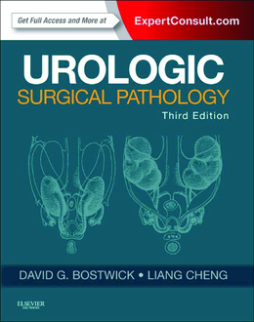
Additional Information
Book Details
Abstract
With sweeping revisions throughout, the new edition of Urologic Surgical Pathology equips you to accurately diagnose specimens of the entire urinary tract and male reproductive system plus the adrenal glands. Comprehensive in scope, this title begins with a look at normal anatomy and histology for each organ system...followed by discussions of the pathology of congenital anomalies, inflammations, non-neoplastic diseases and neoplasia. Practical guidance in daily urological pathology sign-out and the latest recommended diagnostic approaches — with an emphasis on clinicopathologic and radiographic-pathologic correlations — makes this a true diagnostic decision-making medical reference. A consistent format enables you to locate critical information quickly, and more than 1600 high-quality illustrations — most in full color — make diagnosis even easier.
- Consult this title on your favorite e-reader , conduct rapid searches, and adjust font sizes for optimal readability.
- Rely on the practice-proven experience of today’s authorities to identify and diagnose with confidence.
- Confirm your diagnostic suspicions by comparing your findings to more than 1600 color images and color graphics.
- Quickly locate the specific information you need through an abundance of tables, diagrams and flowcharts; boxed lists of types and causes of diseases; differential diagnosis; characteristic features of diseases; complications; classifications; and staging.
- Stay current with the latest information on: differential diagnosis for all tumor types encountered in urological surgical pathology practice; urologic tumor specimen handling and reporting guidelines; new entities and updated classification schemes; and newer immunohistochemical and genetic diagnostic methods.
- Develop targeted therapy specific to a particular patient’s problem based on key molecular aspects of disease, especially in relevance to targeted therapy/personalized medicine.
- Provide the clinician with the most accurate diagnostic and prognostic indicators, by incorporating the latest classification and staging systems in your reports.
- Deepen your understanding of new diagnostic biomarkers and their utility in differential diagnosis.
